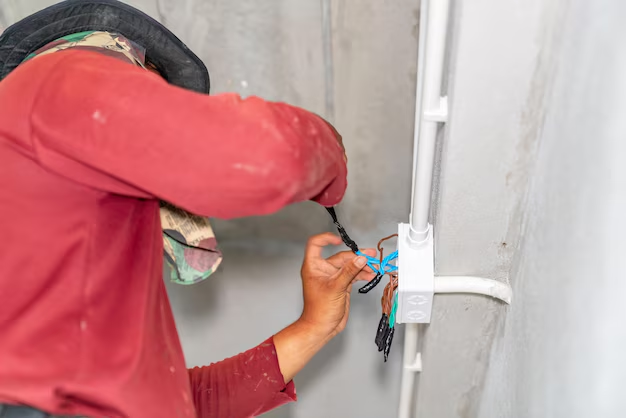Choosing the Right Wire Gauge for Your Refrigerator: Expert Guidance and Practical Tips
Understanding the importance of selecting the correct wire gauge for your refrigerator is essential for safety, efficiency, and longevity. As a key component in household electrical systems, wire gauge can impact the functionality of your refrigerator significantly. In this comprehensive guide, we'll explore the ideal wire gauge for refrigerators while also shedding light on related topics, ensuring you're well-equipped with knowledge to make informed decisions.
🔌 Why Wire Gauge Matters for Refrigerators
Wire gauge is crucial because it determines the wire's ability to conduct electricity efficiently. The American Wire Gauge (AWG) system classifies wires based on their diameter. A lower gauge number indicates a thicker wire, which can handle more current. For a refrigerator, selecting the correct gauge ensures:
- Safety: Using a wire that's too thin for the current can lead to overheating, posing a fire risk.
- Efficiency: The right gauge minimizes power loss and improves the appliance's performance.
- Durability: Adequate wiring reduces wear and tear on your refrigerator's components over time.
📏 Understanding Wire Gauge for Refrigerators
Determining the Right Wire Gauge
The appropriate wire gauge for a refrigerator typically depends on its electrical requirements. Most residential refrigerators require a 120-volt circuit. Here’s a basic guideline for typical refrigerators:
- 14-gauge wire (15-amp circuit): Suitable for smaller refrigerators with lower power demands, typically those using less than 15 amps.
- 12-gauge wire (20-amp circuit): Generally recommended for standard and larger refrigerators that may require more power, ensuring safe and efficient functionality.
For most modern residential refrigerators, a 12-gauge wire is recommended, especially when they are the sole load on a dedicated circuit.
Factors Influencing Wire Gauge Choice
- Refrigerator Size: Larger appliances generally require more power, justifying the need for a heavier gauge.
- Length of the Circuit: Longer circuits might experience voltage drops, necessitating thicker wires to compensate.
- Dedicated Circuit: Splitting a circuit with other appliances can alter your required gauge.
🛠️ Installing Refrigerator Wiring Safely
Best Practices for Wiring Installation
- Use Dedicated Circuits: Preferably, refrigerators should be on dedicated 20-amp circuits using 12-gauge wire to minimize risks.
- Check Building Codes: Always adhere to local electrical codes, as they often dictate specific requirements for home wiring.
- Consult Professionals: If uncertain, hiring a licensed electrician can ensure safety and compliance.
Gauge Vs. Other Factors in Electrical Safety
While selecting the right wire gauge is essential, ensure your electrical system is fully evaluated for safety. Consider:
- Outlet Quality: Make sure outlets are rated for the amperage of your circuit.
- Circuit Breakers: Use appropriately rated circuit breakers for your refrigerator.
- Surge Protectors: Consider using surge protection to shield your appliance from power spikes.
🔍 Exploring Wire Materials: Copper vs. Aluminum
Why Wire Material Matters
Wire material affects conductivity, cost, and installation. When choosing wires, the two most common materials are copper and aluminum.
- Copper: Known for excellent conductivity and strength, copper is the preferred choice for most residential applications despite being costlier.
- Aluminum: Lighter and less expensive, aluminum may be used in larger commercial settings, but it necessitates a larger gauge to handle the same current as copper.
For home refrigerators, copper wiring is typically recommended due to its reliability and superior conductivity.
☑️ Summary: Key Takeaways
Choosing the correct wire gauge for a refrigerator enhances safety and operational efficiency. Here’s a handy summary to guide your decisions:
- 12-gauge wire with a 20-amp circuit is recommended for most modern residential refrigerators.
- Larger refrigerators or shared circuits may require adjustments to the gauge or wiring setup.
- Always follow local code requirements and consult with a professional electrician if in doubt.
- Copper wiring is preferred for its durability and conductivity.
🏠 Considering the Big Picture: Related Wiring Considerations
Other Appliance Wiring
It’s beneficial to consider how the refrigerator's wiring fits into your home's overall electrical plan. Key questions to contemplate include:
- Can the existing home wiring support additional appliances on the same circuit?
- Are there other high-demand appliances that need a separate circuit?
Exploring these questions ensures that your refrigerator functions as part of a safe and efficient household system.
Continuous Monitoring and Maintenance
Regular checks can prevent electrical issues. Make it a habit to periodically inspect the condition of your wiring and circuits, ensuring everything remains up to code and functions effectively.
By approaching the topic of refrigerator wiring comprehensively, this guide aims to empower you with the knowledge to optimize your appliance's performance, longevity, and safety. Taking the time to understand and implement proper wiring practices ensures both peace of mind and the smooth running of your household's electric systems.

